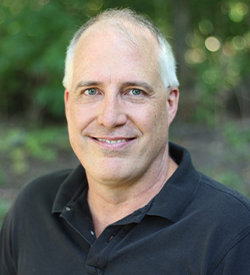Defined by their student-centered approaches to course material, these educators are recognized for their commitment to supporting young minds.
By Rachel Robey

Eight members of the Department of Computer Sciences’ teaching faculty have been appointed teaching professors, a new title established by Dean Eric Wilcots in recognition of “demonstrated and ongoing excellence, distinction, and innovation in instruction.”
Congratulations to the following members of our esteemed faculty:
- Tyler Caraza-Harter, Associate Teaching Professor
- Gary Dahl, Teaching Professor
- Debra Deppeler, Teaching Professor
- Beck Hasti, Teaching Professor
- Andrew Kuemmel, Teaching Professor
- Hobbes LeGault, Associate Teaching Professor
- Marc Renault, Teaching Professor
- Jim Williams, Teaching Professor
“Our teaching professors set the standard for education, in our department and in the university writ large,” says Department Chair Paul Barford. “As educators supporting the largest and most popular major on campus, they’re often responsible for hundreds of students per semester. Year after year, they rise to the challenge and ensure we remain national leaders in computer science education.”
(On Tuesday, September 23, UW–Madison’s undergraduate computer science program was ranked ninth among publics and 16th overall by U.S. News & World Report, in large part due to the hard work of these educators. The rankings also covered several subfields, with UW ranking sixth in systems, 15th in programming languages, and 23rd in artificial intelligence.)
For the 21 members of teaching faculty educating much of Computer Sciences’ roughly 2,575 undergraduate and 490 graduate students — and the countless others who may enroll in courses without being formally affiliated with the department — it’s not just about working through a syllabus. To be able to serve so many students requires creativity, empathy, and agility in meeting student needs.

Teaching Professor Debra Deppeler sees her role as encouraging students to sit in the discomfort of not knowing. Having taken “a scenic route” through college herself, Deppeler — who studied Agroforestry at UW–Madison before returning for a Masters in Computer Sciences — understands that knowledge is worth seeking even if it doesn’t come easily at first.
“I try to parlay my own academic challenges into support and empathy for students who need extra help along the way,” she says. “The best is when I finally convince a student that it’s okay to read the textbook without fully understanding it, because it turns out that means you’re in the right place. As soon as you understand it, you’re ready to move on.”

Now in his tenth year as a computer science educator at UW–Madison, Teaching Professor Jim Williams describes his work as constantly evolving. “For those that really want to learn, I try to provide a path,” he says.
In the classroom, his background in educational psychology helps him create accessible and welcoming curricula. The goal: to encourage all students to pursue a computer science education — not just the ones fortunate to know some programming prior to their arrival on campus. These same students credit him with changing the course of their careers and encouraging them to stick with one of campus’ most demanding degrees.
“I’m appreciative of the recognition, especially at a research university where educators aren’t always visible,” says Williams. “Together, we’ll shape the future of computer science education.”
Congratulations — and a heartfelt thank you — to these talented and dedicated educators for all that they do.